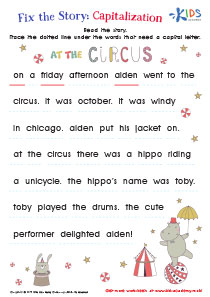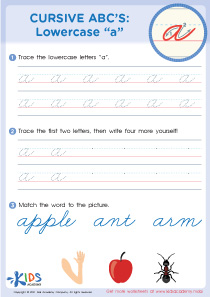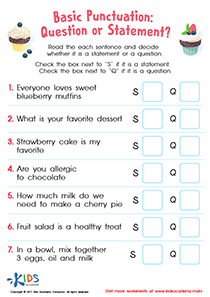English grammar practice Writing Worksheets for 7-Year-Olds
3 filtered results
Difficulty Level
Grade
Age
-
From - To
Subject
Activity
Standards
Favorites
With answer key
Interactive
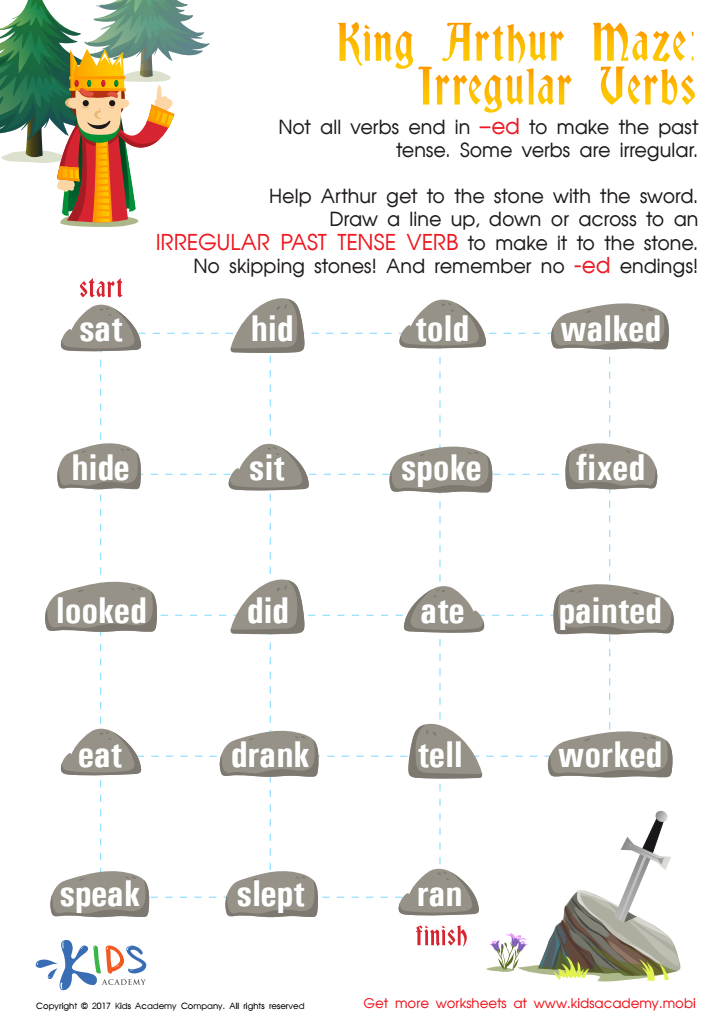

Irregular Verbs: Stones Worksheet
Learning irregular verbs takes work. 2nd grade worksheets focus on present and past forms. Kids can help King Arthur get to the stone by picking the right past form of the verbs on the stepping stones.
Irregular Verbs: Stones Worksheet
Worksheet
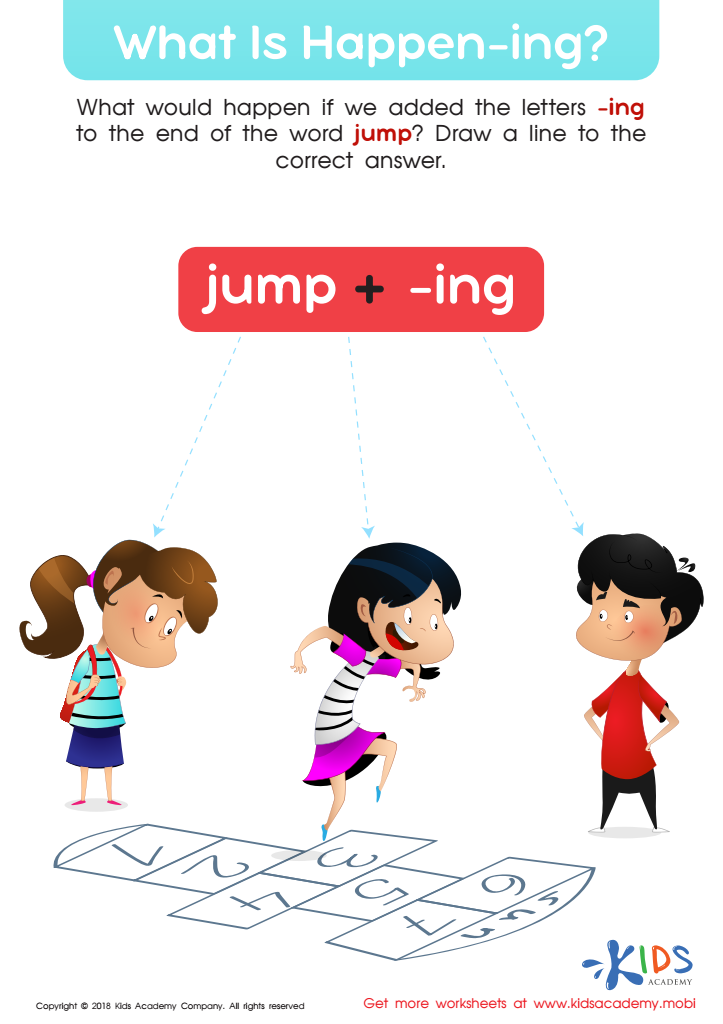

What Is Happen-Ing? Worksheet
Explain to your kids the difference between present and past tense verbs. Give examples and explain how adding '-ing' to the end of a verb changes it to past tense. Ask them to draw a line on the worksheet to the correct answer for the example 'jump'.
What Is Happen-Ing? Worksheet
Worksheet
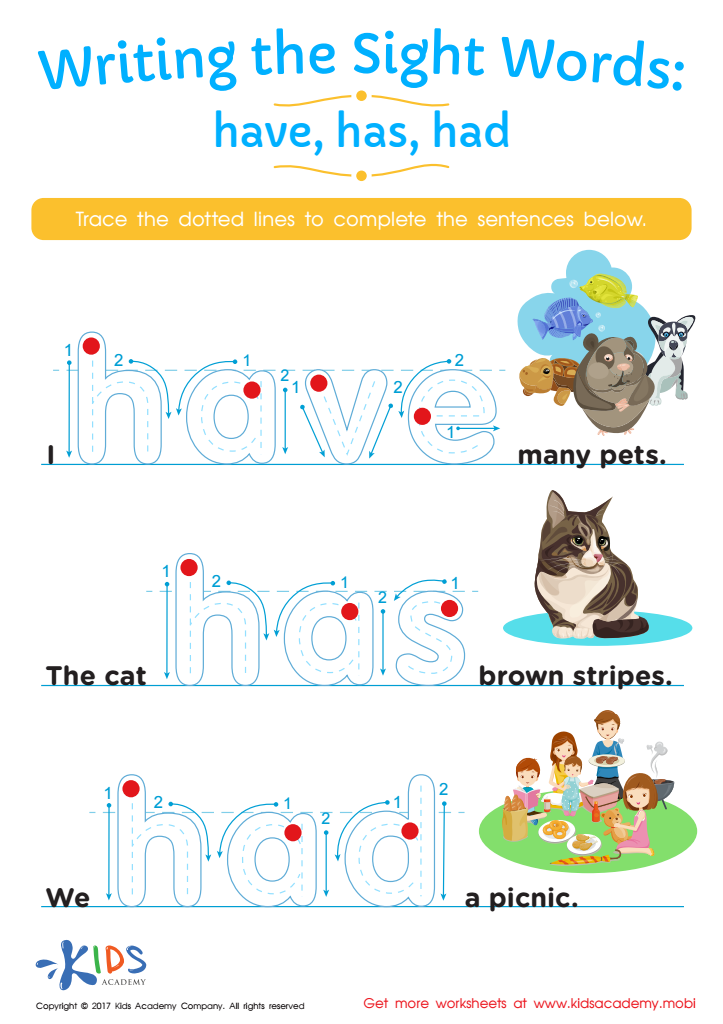

Have, Has, Had Worksheet Sight Words Worksheet
Writing and reading go hand-in-hand. Build your child's literacy with this helpful worksheet, focusing on the sight words - have, has, had. Have them read through the sentences and trace the words to master the skill.
Have, Has, Had Worksheet Sight Words Worksheet
Worksheet
 Assign to the classroom
Assign to the classroom






